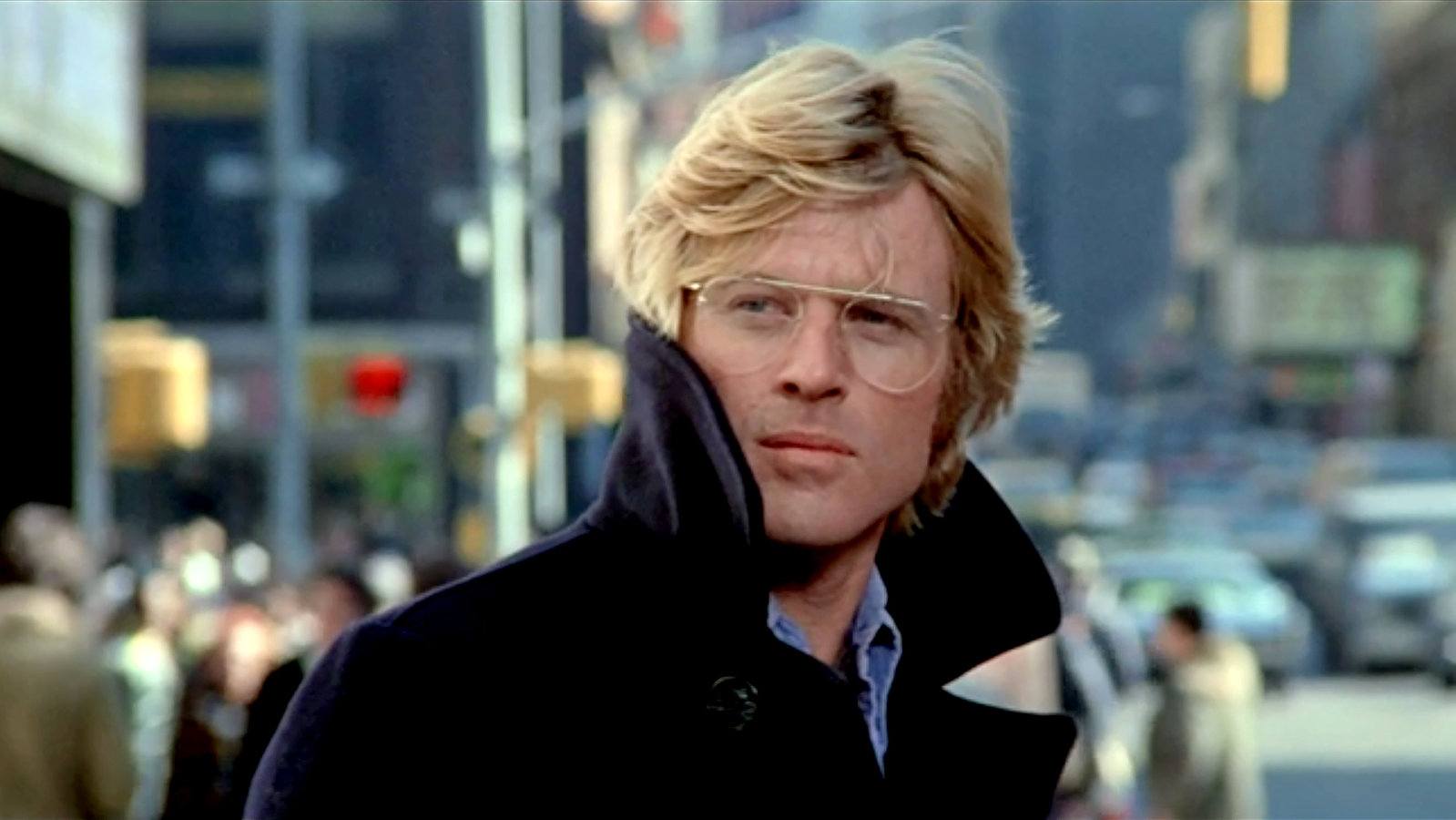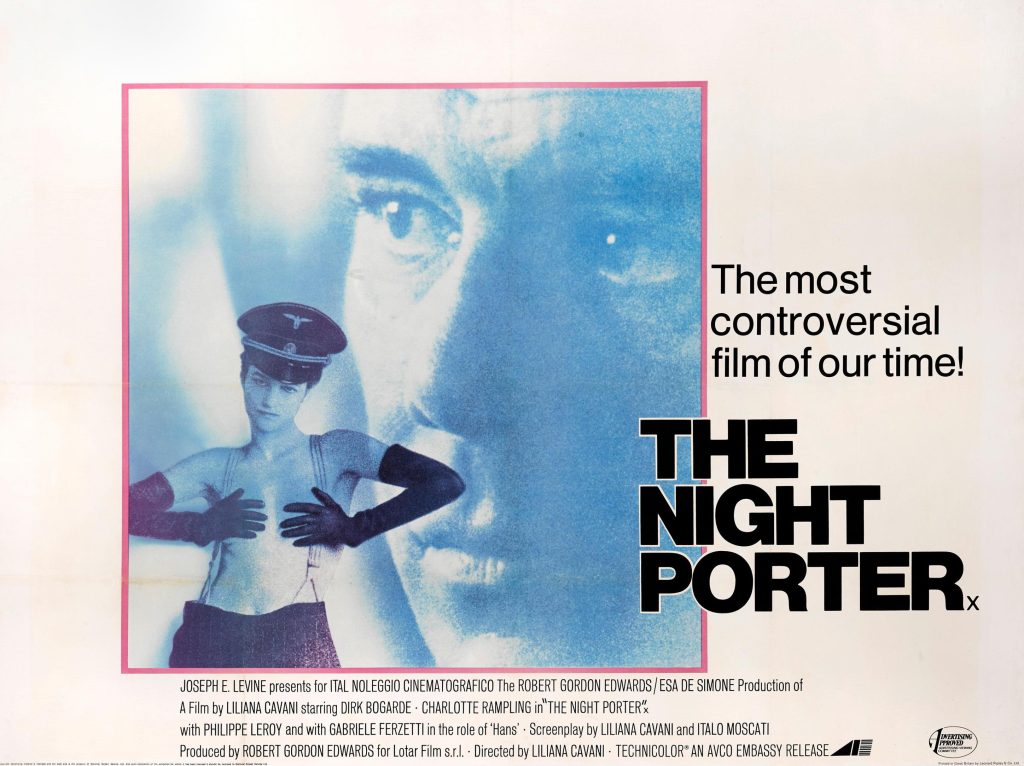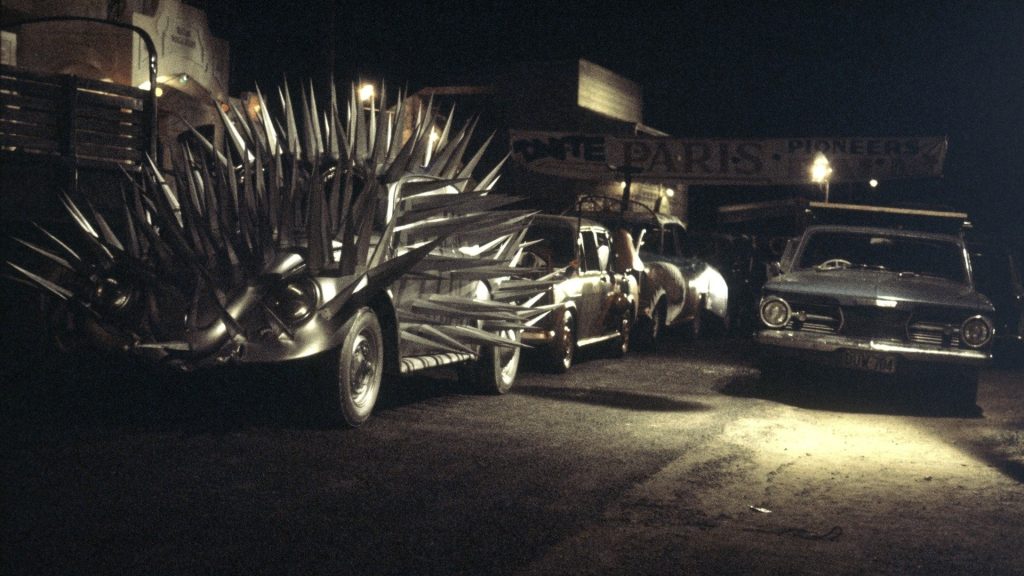“I’m not a field agent,” he insists. “I just read books.” And while that might be true, he’s going to have to learn to be a field agent, and do it pretty damn quickly. His name is Turner, and he works for the CIA – or, as it’s more often referenced, “The Company.” But he’s telling the truth; he does his work in a remote office, located in a Manhattan brownstone, where he and other analysts pore over published works – novels, magazines, newspapers, and journals – for hidden messages and classified information. One day, all of Turner’s co-workers are ruthlessly executed, gunned down with military precision by a group of intruders. Turner should’ve been killed too. But he was out to lunch.
Turner’s story was first told by James Grady in his novel Six Days of the Condor; they really do have to streamline these things when they make them into movies, and thus we have the 1975 thriller Three Days of the Condor (new this week to the Criterion Channel, streaming for a while now on Amazon Prime). The genius of the story, both as told by Grady and by the screenwriters Lorenzo Semple Jr. and David Rayfiel, is how its genuine danger and urgency means that Turner – played here by Robert Redford – doesn’t have much of a learning curve. He has to improvise, clumsily grabbing a gun as he flees the bloodbath, and doing… well, what exactly? (Act like the spies in books he’s read and movie’s he’s seen, most likely).
There is A Girl, of course; there always is. Her name is Kathy, and she’s a photographer (Faye Dunaway plays her, and would star as another New York photographer three years later, in Irvin Kershner’s Eyes of Laura Mars). Because they meet when Turner takes her hostage, and their initial interactions are charged with the potential for sexual violence, the byplay between them plays quite differently through a contemporary lens. The transition from that dynamic to one of trust and intimacy is tough to pull off, and they don’t quite land it, though the It’s A Wonderful Life-style “phone call from a would-be boyfriend” scene is a wise effort. (Two-plus decades later, Soderbergh’s Out of Sight would slyly call out the credibility of that turn – as a clever way to replicate it.)

However unfortunate the circumstances, it was presumably out of the question for Robert Redford to star in a major motion picture where he didn’t get the girl, no matter how inappropriately. Condor is a fascinating vehicle for Redford, particularly from its mid-‘70s origin point, because it finds him veering from the sort of conventional leading man he was specializing in; this is more the kind of offbeat lead that contemporaries like Dustin Hoffman or Al Pacino would customarily take on. There is some attempt, in the early scenes, to cut Redford from the same cloth; he’s a nerd, you see, an analyst, riding a bicycle. He even wears glasses!
But it doesn’t really take, and it’s temporary anyway; by the end of the picture, he’s lurking undetected in private homes and busy crowds, gun in hand, collar turned up. The “desk jockey becomes a tough guy” narrative is quite the chestnut, dusted off frequently for cop movies and spy pictures. Yet it nevertheless works here, and much of that is due to Redford’s performance. You may not fully buy that he’s this clumsy bookworm, but the characterization is still convincing – mostly because he’s so good at the thing a story like this needs most, which is a protagonist who lets you see what he’s thinking. Watch his expression shift from jovial to horrified when he returns from his ill-fated lunch run; marvel at how many scenes involve his character piecing together what’s happening, and puzzling out his next move. The Bourne Identity uses a similar playbook, but this isn’t a character suffering from amnesia; it’s one who literally has no idea what the hell he’s doing.
And he’s up against some difficult characters. The recently departed Max von Sydow (RIP) is the main gunman, and Turner’s primary pursuer; it’s a truly chilling performance, from an actor who never raises his voice or his blood pressure. As Turner’s not-entirely-trustworthy contact in “The Company,” Cliff Robertson’s inscrutability – a liability in some of his more conventional roles – becomes an asset, allowing the character to hide his true motives and allegiances without seeming dodgy.
The director is Sidney Pollack, and while the picture is weighed down (as too many of his films are) by a soggy Dave Grusin score, Three Days is nonetheless a sharp reminder that Pollack was one hell of a craftsman. There’s a crisp efficiency to the storytelling – no wasted details, and even the most convoluted plot points are explained satisfactorily – and a handful of memorable set pieces. My favorite is the quietest, a drawn-out elevator ride in which we know who von Sydow is, but Redford doesn’t (though it’s dawning on him). There’s no music, or push-button close-ups; Pollack just lets us sit in the discomfort of knowing more than the protagonist, which is one definition of truly effective suspense.

Because of its mid-‘70s timing, Condor is a bit of a contradiction; it’s a slick genre movie, but set in a grimy town. Cinematographer Owen Roizman shot some of the quintessential dirty New York movies, including The French Connection and Network, so it has the washed-out sleaze of those films, but also indulges in old-school spy movie pleasures like manually plugging into a phone bank, or working through a lengthy call trace. (There’s also something weirdly perfect about the vague yet sinister cover names of The Company’s clandestine organizations: “American Literary Historical Society,” “Five Continents Imports Inc.” etc.)
The film’s 1975 release date also means it was produced and released in the immediate aftermath of Watergate, which certainly lent an extra zing to lines like “What is it with you people, you think not getting caught in the lie is the same as telling the truth?” That decade saw a boom in a very specific kind of political conspiracy thriller: The Parallax View (co-written by Condor co-writer Semple), The Conversation, Winter Kills, Executive Action, Blow Out (okay, it was 1981, but you know what I mean), and the non-fiction patriarch of the paranoid family, Redford’s All the President’s Men.
It’s hard to separate any of those films from the real-life events that lent them an eerie sense of not only possibility but probability, and so the idea of a rogue group within the C.I.A., which might have seemed far-fetched even in Grady’s novel merely a couple of years earlier, was now borne out by the historical record. And thus the final confrontation between Redford and Robertson, which hints at a wild plot to invade the Middle East and the idea of manufacturing political need first and asking permission later, has a ring of discomforting prescience.
But as some things stay the same, some things shift in ways we cannot predict. Turner’s big power play at the picture’s conclusion, the ace up his sleeve, is the revelation that he’s turned over evidence and narrative to the New York Times, thus ensuring not only his own safety, but a scandal for the organization that nearly killed him. In 1975, and for years after, this must’ve seemed like quite the gotcha. It’s enough to make one nostalgic for an era when a bombshell Times report would actually mean something.
“Three Days of the Condor” is now streaming on the Criterion Channel and Amazon Prime.



